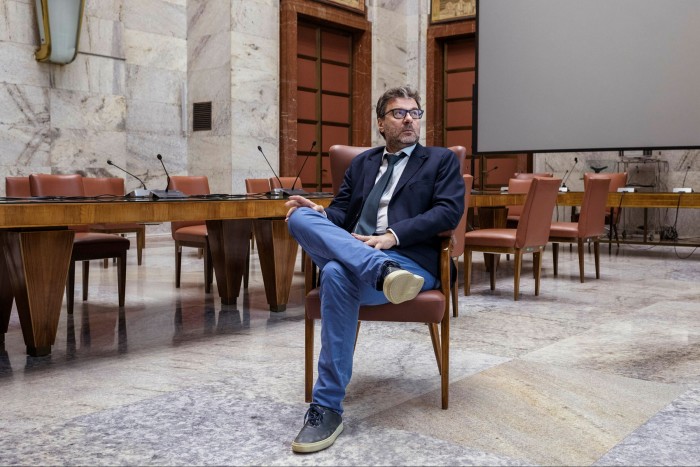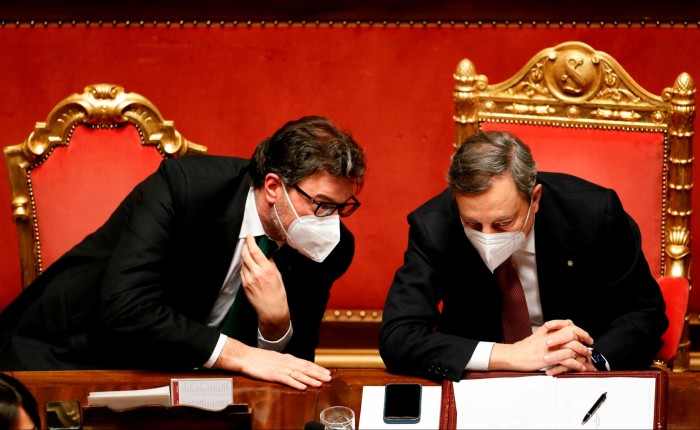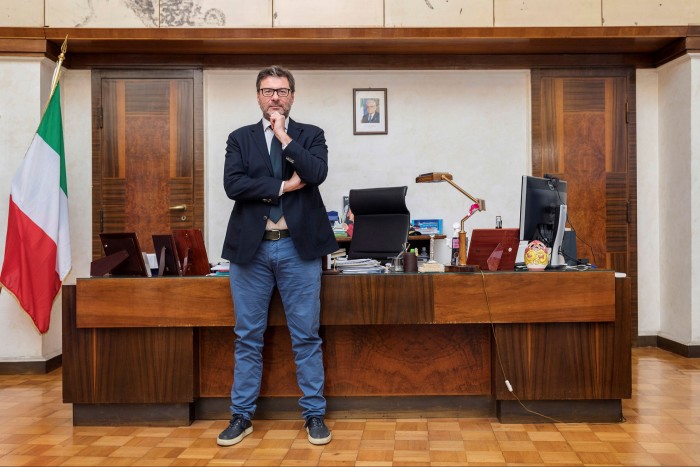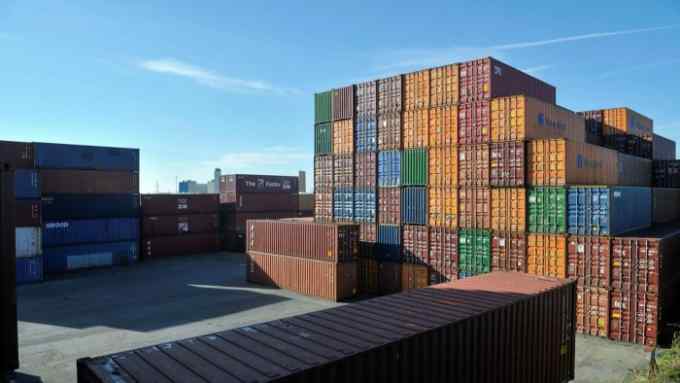Italy’s economic development minister: ‘We are completely changing public administration’

Roula Khalaf, Editor of the FT, selects her favourite stories in this weekly newsletter.
Three years ago, international investors watched nervously as a radical new government took office in Rome — one whose members had openly flirted with the idea of Italy leaving the European single currency.
That coalition — struck between the anti-establishment Five Star Movement and the anti-immigration League party of Matteo Salvini — attacked Brussels and pledged to increase Italy’s state spending. Some saw it as an existential threat to the eurozone itself.
Now, the League, still led by Salvini, has returned to power, but inside the
government of national unity being led by Mario Draghi — who, as the former president of the European Central Bank and saviour of single currency, is the personification of pro-European technocracy.
The League’s pivot from populist rabble-rousers to apparent pro-Europeans may appear somewhat confusing. However, the key to understanding this transformation is Giancarlo Giorgetti, minister for economic development and number two in the party.
While Salvini is better known outside Italy, Giorgetti — a 54-year-old veteran who has been an MP since 1996 — is powerful in his party and has been instrumental in its change in strategy.
In the current coalition, Draghi has asked him to play a crucial part in shaping Italy’s industrial future policy, as part of the national investment and reform plan. Salvini, by contrast, holds no ministerial role.
Giorgetti has also openly disagreed with Salvini on important policy matters, such as compulsory vaccines, and serves as a counterbalance to Salvini’s more radical instincts. He argues that the Draghi reforms will be critical in reversing more than two decades of economic stagnation.
“Above all, we are trying to construct a regulatory framework that is certain for investment,” he says. “We are completely changing the way the Italian public administration works. We are also making a huge effort to reform the justice system, to speed up trials and be faster and more efficient”.

Giorgetti is optimistic that the Draghi plans will work. Alongside former Vodafone CEO and innovation minister Vittorio Colao, he has launched a plan to speed up the rollout of high-speed internet technology across Italy and launch a national cloud-computing programme.
Giorgetti is frank, too, in acknowledging that Italy finds itself in a rare moment of stability. “We are in a situation that is particularly favourable in terms of borrowing costs,” he says.
Still, while Italy was far from alone in having its economy ravaged by the coronavirus pandemic, it differs from other large European countries in having no recent record of recovering from a crisis. GDP today remains below where it was before the global financial crisis of 2008. Why, then, will this time be different?
Giorgetti argues that just as important as Italy’s reform programme is the fact that European budget rules are allowing the country’s government to invest in the future.

“In the past 20 years, we have paid the price of an austerity programme and budget rules in Europe that have been greater than other countries,” he says. “We can be much more agile now in investing. The pauperisation of countries has ended . . . we can use our resources in a much more intelligent way.”
Just three years ago, Brussels chided Rome for attempting marginally to increase its budget deficit. Today, under Draghi and in the Covid-19 crisis all constraints have been suspended.
“The picture is different,” Giorgetti says. “What was once taboo is no longer a taboo”.
He believes that, with Draghi at the helm, Italy can have a more powerful voice in European industrial and budgetary policy than in the past. “With the elections in Germany and France, Italy can be an important protagonist in shaping the rules,” he says. “Under the leadership of Draghi, Italy can play a different role than before.”
Giorgetti epitomises his party’s more centrist, pragmatic wing, rooted in its traditional base of northern Italian business rather than Salvini’s anti-migration tirades and pan-Italian nationalism.
While Salvini became known as a sovereigntist for his “Italians First” rhetoric, as well as his flirtations with Putin’s Russia, Giorgetti is explicit about the importance of Italy’s place in the EU and its commitment to Nato.
He believes in European state-aid rules being adjusted to allow countries to strengthen their industrial bases. However, on matters of defence, he says that Europe must keep co-operating closely with the US and, while Italy will always be collaborative, it must act in the interests of its own national champion companies, such as Leonardo.
“I don’t think that Europe can be independent from the US in terms of its defence policy, so we have to continue to play a game that is global,” he says.
Giorgetti also represents the fragility of political equilibrium in Italy. Soon after his interview with the FT, he told an Italian newspaper that he would favour Draghi leaving his role and becoming Italy’s president, opening the way for the country to hold elections.
For now, Draghi’s personal plans remain secret. However, anyone betting on the country’s political future should also watch Giorgetti: the direction of Italy’s rightwing may depend on the balance of power between him and Salvini within the League.

Comments